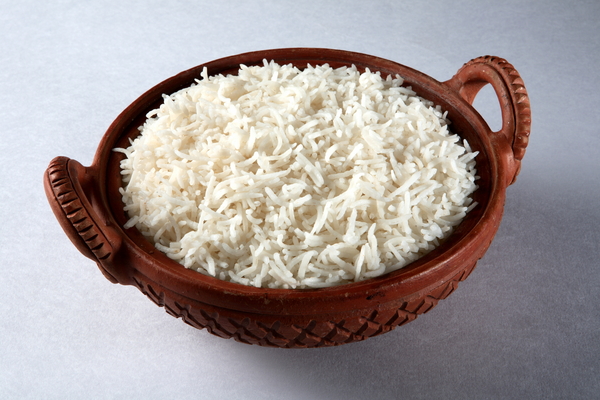White Rice Linked to Type 2 Diabetes, Study Says

Eating white rice regularly may raise your risk of developing Type 2 diabetes, a new study suggests.
The results showed that people who ate three to four servings of white rice a day were more likely to develop Type 2 diabetes than people who ate one to two servings a week.
And the more white rice eaten, the higher the risk of Type 2 diabetes; the authors estimated that the diabetes risk rises by 11 percent with each increased daily serving of white rice.
The study suggested an association, not a cause-and-effect link. Neither doctors nor patients should take "large-scale action" based on the findings; more work is needed to substantiate the idea that white rice increases the chances of getting Type 2 diabetes, according to Bruce Neal, a professor of medicine at the University of Sydney in Australia, who was not involved in the research but who wrote an editorial accompanying the study in the journal.
Still, "diet-related ill health is now widely believed to be the leading cause of chronic disease around the world," and more work needs to be done to find ways to prevent and treat such diseases, Neal wrote.
In the study, researchers at the Harvard School of Public Health in Boston looked at four previous studies examining the link between eating white rice and the risk of Type 2 diabetes — two done in Asian countries (China and Japan) and two in Western countries (the U.S. and Australia). The researchers said they were looking to see whether the link between eating white rice and developing diabetes was stronger among people in Asia, who tend to eat more white rice than Westerners.
The studies, which ranged in length from four to 22 years, included a total of about 352,000 participants; none had diabetes at the start. Over the course of the studies, 13,284 people developed diabetes.
Get the world’s most fascinating discoveries delivered straight to your inbox.
A link between increased consumption and diabetes risk was found in both Asian and Western countries, though the link was stronger among people in Asian countries. The link was also stronger in women than men, the researchers said.
The researchers said that rice has a high glycemic index, which means the body rapidly converts the carbohydrates in rice into glucose. The glycemic index of white rice is about 64, on a 100-point scale. (From comparison, ice cream has a glycemic index of 61, and orange juice rates a 50, according to data from Harvard.)
Previous work has linked diets with many high glycemic index foods with an increased risk of developing Type 2 diabetes, the researchers said.
White rice has a fewer nutrients than brown rice, the researchers noted.
The findings appeared today (March 15) in the journal BMJ.
Pass it on: A new study suggests a link between eating a lot of white rice and developing Type 2 diabetes.
This story was provided by MyHealthNewsDaily, a sister site to LiveScience. Follow MyHealthNewsDaily on Twitter @MyHealth_MHND. Find us on Facebook.
 Live Science Plus
Live Science Plus






